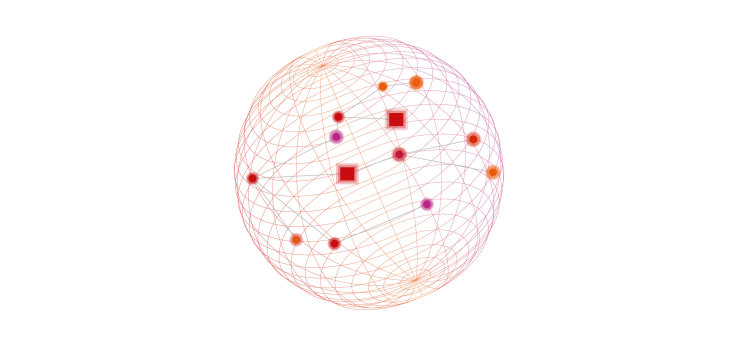International network on climate change adaptation
Dealing with complex scientific and social issues - so-called global challenges - requires different perspectives, expertise and application references, locally and globally, interdisciplinary and transdisciplinary. Against this background, the establishment of international networks is of great importance.
As part of Connecting Dots, a network on topics in the context of “Climate Change Adaptation” is being established. The basis for this is an existing network that works on the sustainable management of natural resources - the Centers for Natural Resources and Development (CNRD). With the help of selected partners from the CNRD, bilateral activities with a regional focus in the field of climate change adaptation will initially be implemented, which will then be transferred to a network structure and rolled out across regions.
Current calls for project proposals
The projects mentioned here will be published through an internal call for project proposals. Specific information on these project and their funding framework can be found via the link below
The joint projects with individual network partners are carried out in four sections and ideally actively involve different status groups and stakeholders. The first two sections are organized bilaterally between members of TH Köln and one of the four partner universities and are successively transferred into a network structure from section 3 onwards. The bilateral setting at the beginning serves to reduce complexity and thus makes it easier to get “into the doing”. The initial results of this cooperation then form the basis for gaining further partners for cooperation.
1. Virtual initiation: The recruitment of suitable contacts at the partner university and the conception of a joint project takes place independently and in virtual space. Once the proposal has been selected, the project idea is further developed in virtual meetings and the face-to-face phase is prepared.
2. In-presence phase at the partner university: The collaboration is then continued at the partner university in a short in-presence phase in which external stakeholders are also involved in the collaboration.
3. Virtual working phase: In the subsequent virtual phase, the results of the face-to-face meeting are followed up and further processed and the project is opened up to other network partners.
4. Establishment of the "Climate Change Adaptation" network: Representatives of all partner projects will come together in the Rhineland in 2027. In joint, cross-project workshops, the bilateral activities will be linked and specific next steps for further projects will be defined. This will mark the start of further activities as a network. The event will be held jointly with members of Co-Site and linked to one of the model regions there. This will allow the respective regional perspectives and solutions to be consolidated into a global one, which in turn will reflect back on the local areas.
In line with the goal of transformative scientific practice, the network's activities are transdisciplinary. Following the principle of "bringing global knowledge to local areas," the participating university partners involve regional stakeholders from other societal subsystems in teaching and research discourses. The goal is to create and communicate knowledge with and for society.


